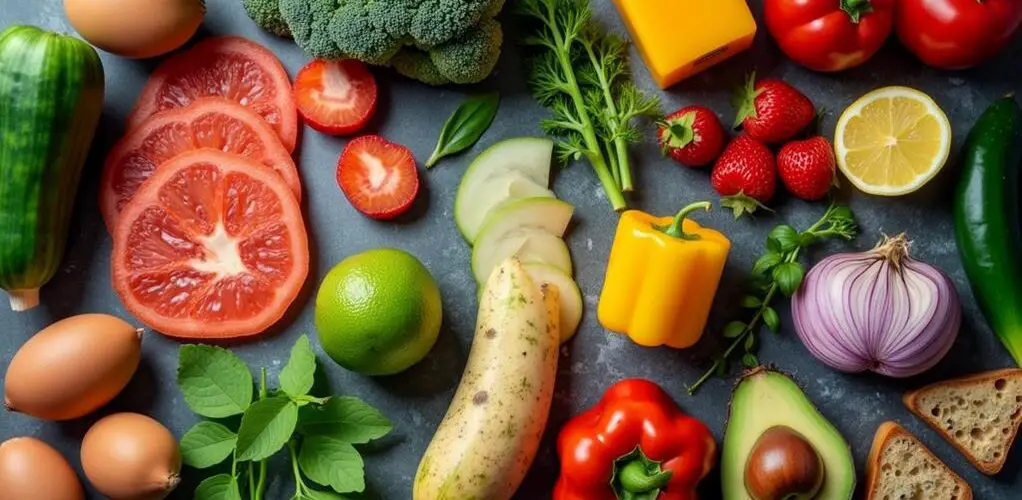
To maintain ketosis effectively, it is essential to avoid certain high-carb foods. Refined carbohydrates such as white bread, pasta, and rice are primary culprits due to their significant carb content. Starchy vegetables like potatoes and peas also pose a risk with their high net carb levels. Sugary foods, including honey, maple syrup, and soda, disrupt ketosis by spiking insulin levels. Many alcoholic beverages, especially beer and sugary cocktails, contain high carbs that can derail your progress. High-carb fruits like bananas and grapes should also be avoided. By staying aware of these foods, you can optimize your ketogenic journey and discover helpful alternatives.
Key Takeaways
- Avoid refined carbohydrates like white bread, pasta, and rice, which are high in carbs.
- Steer clear of starchy vegetables such as potatoes and sweet potatoes due to their high net carb content.
- Eliminate sugary foods including honey, maple syrup, and sugary sodas that disrupt ketosis.
- Limit consumption of high-carb fruits like bananas, apples, and grapes, which can exceed daily carb limits.
- Reduce intake of alcoholic beverages, especially beer and high-carb cocktails, to maintain ketosis.
Refined Carbohydrates
Refined carbohydrates, including common staples such as white bread, pasta, and rice, pose a significant challenge for individuals adhering to a ketogenic diet due to their high carbohydrate content. A single slice of white sandwich bread contains approximately 13 grams of carbohydrates, which can rapidly accumulate and exceed the stringent daily carb limits required to maintain ketosis.
Similarly, cooked white pasta and white rice contribute around 33 grams and 26.5 grams of carbs per serving, respectively, both of which are sufficient to disrupt the metabolic state of ketosis.
It's important to note that non-starchy vegetables like cauliflower and broccoli are better suited for ketosis. To mitigate this, individuals must be vigilant about hidden carbs often present in refined carbohydrate products. These hidden carbs can inadvertently raise daily carbohydrate intake, thereby complicating the maintenance of a low-carb diet.
Instead of traditional refined carbs, adopting low carb alternatives is pivotal. For example, mashed cauliflower or bread made from eggs and nuts can provide satisfying substitutes without compromising the ketogenic parameters.
Adherence to a ketogenic diet necessitates a strategic approach to carbohydrate intake, emphasizing the importance of recognizing and replacing refined carbohydrates with viable low-carb alternatives to sustain ketosis effectively.
Starchy Vegetables
When following a ketogenic diet, it is essential to be mindful of starchy vegetables due to their high carbohydrate content.
Vegetables like potatoes, sweet potatoes, corn, and peas are high in net carbs, which can hinder the body's ability to maintain ketosis. For instance, a medium sweet potato contains approximately 20 grams of net carbs, while a single medium carrot has about 4.1 grams.
Even seemingly innocent peas pack around 14 grams of net carbs per cup, making them less suitable for a keto diet. Additionally, carrot consumption should be monitored carefully due to their higher carb content compared to other vegetables.
To guarantee dietary compliance, consider incorporating starchy vegetable alternatives that are lower in carbohydrates. Zucchini, with only 2.6 grams of net carbs per cup, and broccoli, containing 3.7 grams per cup, are excellent options for low carb cooking.
These alternatives can help you stay within your daily carb limit while still providing essential nutrients.
Sugary Foods
Sugary Foods
While being cautious about starchy vegetables is important, another major category to monitor on a ketogenic diet is sugary foods. Sugary foods, including honey and syrups, are concentrated sources of carbohydrates. For instance, a tablespoon of honey contains 17g of carbs, and maple syrup has 13g per tablespoon, making them unsuitable for maintaining ketosis.
Sugary foods not only derail ketosis but also cause spikes in blood glucose levels, disrupting overall metabolic health.
Sugary sodas are particularly detrimental; a 12 oz can of Coca-Cola provides a staggering 39g of carbs with zero nutritional value, greatly hindering ketosis. Additionally, common condiments such as ketchup and barbecue sauce often contain hidden sugars, with ketchup having approximately 3g of carbs per packet and barbecue sauce around 4g.
High-carb snacks like cookies and candies are also problematic, as they typically contain refined sugars that can cause spikes in blood glucose levels, disrupting ketosis.
Even dried fruits, such as Medjool dates, can be misleadingly high in carbs due to concentrated sugars, with around 18g of carbs per date.
Instead, opt for sugar substitutes that are keto-friendly, such as erythritol or stevia, to satisfy your sweet tooth without compromising your dietary goals.
Being vigilant about these sugary pitfalls can help maintain a successful ketogenic lifestyle.
Alcoholic Beverages
Alcoholic beverages can considerably impact your ability to maintain a ketogenic diet due to their carbohydrate content. Many alcoholic drinks, such as beer, can contain significant carbohydrates, with a typical 12 oz serving having around 6-12 grams of carbs, depending on the type.
Mixed drinks often have added sugars; for instance, cocktails like piña coladas can contain up to 32 grams of carbs, making them highly unsuitable for a ketogenic diet. During the initial adaptation phase, consuming high-carb alcoholic beverages can exacerbate symptoms like fatigue and performance dips.
Hard liquors such as vodka, gin, and whiskey are generally lower in carbs and can be better choices. However, it is essential to mix these spirits with calorie-free options like soda water to keep carb intake minimal.
Sweet wines and flavored liquors can also be problematic as they may contribute up to 20 grams of carbs per serving, potentially disrupting ketosis.
Alcohol moderation is key, as even low-carb cocktails can affect your ability to maintain ketosis and may induce cravings for high-carb foods.
Following a ketogenic diet while consuming alcohol requires careful selection and moderation of beverages to guarantee that your carbohydrate intake remains within the desired limits for ketosis.
High-Carb Fruits
Maneuvering a ketogenic diet demands a meticulous approach to carbohydrate intake, and high-carb fruits pose a significant challenge in this regard. High-carb fruits such as bananas, which contain over 20 grams of net carbs each, are unsuitable for maintaining ketosis. Grapes also fall into this category, with approximately 18 grams of net carbs per cup, potentially exhausting one's daily carb allowance.
Apples, often perceived as healthy, can hinder ketosis efforts due to their 25 grams of net carbs per medium-sized fruit. Furthermore, consuming high-carb fruits can cause blood sugar spikes, leading to increased insulin release and fat storage, which is counterproductive to the goals of a ketogenic diet.
Mangoes are particularly problematic, as one medium-sized mango can contribute around 45 grams of net carbs, ranking it among the least keto-friendly options available. These high-carb fruits can quickly derail the stringent carb counting required for a successful ketogenic diet.
Instead of these high-carb choices, individuals should consider fruit alternatives such as berries. Berries, including strawberries, raspberries, and blackberries, offer a lower-carb option, providing approximately 3-7 grams of net carbs per half-cup serving.
These alternatives enable one to enjoy the nutritional benefits of fruit while adhering to the low-carb requirements of a ketogenic lifestyle. By carefully selecting fruit alternatives, one can better manage carb intake and maintain ketosis effectively.
Frequently Asked Questions
What Foods Are Not Allowed on Keto Diet?
Avoid high-carb items such as bread, pasta, rice, starchy vegetables, sugary foods, processed snacks, and many fruits on a keto diet. Opt for keto food swaps and be vigilant about hidden carbs to maintain ketosis.
What Foods Can I Eat Unlimited on Keto?
On a keto diet, you can eat unlimited low-carb vegetables like spinach and kale, healthy fats such as olive oil, and high-protein options like meat and fatty fish. These provide excellent keto meal ideas and low-carb snacks.
What Are the 9 Rules of Keto?
The nine rules of keto include limiting carbohydrate intake, avoiding high-carb foods, choosing healthy fats, moderating protein levels, staying hydrated, managing electrolytes, understanding keto misconceptions, effective keto meal planning, and regularly monitoring ketone levels.
What Are the Top 10 Keto Foods?
For ideal keto nutrition, consider fatty fish, low-carb vegetables, cheese, plain Greek yogurt, cottage cheese, nuts, olive oil, and coconut oil. These foods serve as excellent keto snacks and substitutes, ensuring balanced, low-carb meals.
Conclusion
To sum up, adherence to a ketogenic diet necessitates the exclusion of refined carbohydrates, starchy vegetables, sugary foods, alcoholic beverages, and high-carb fruits. These food categories can greatly disrupt ketosis by increasing blood sugar levels and insulin response, thereby impeding the diet's effectiveness. Careful selection of low-carbohydrate alternatives can facilitate sustained ketosis, promoting the metabolic benefits associated with the ketogenic dietary regimen. Consequently, informed dietary choices are imperative for optimizing outcomes on a keto diet.
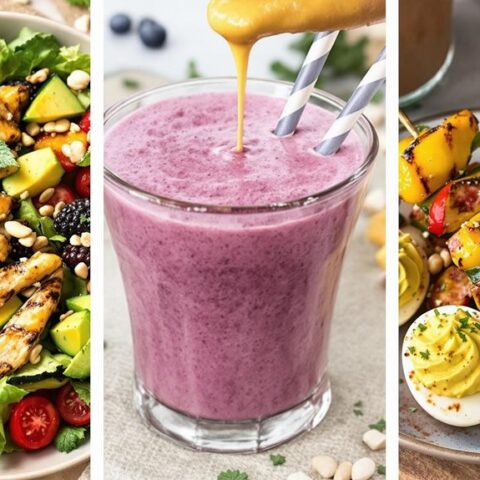
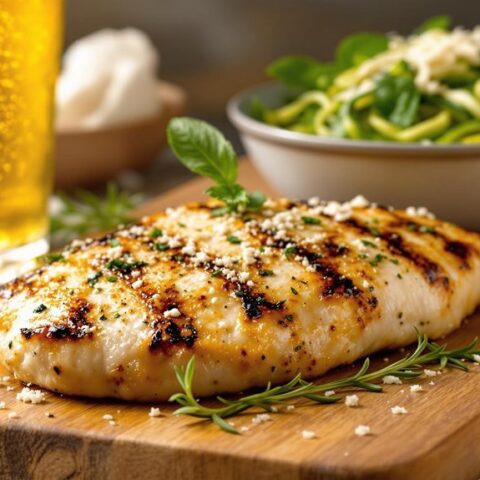


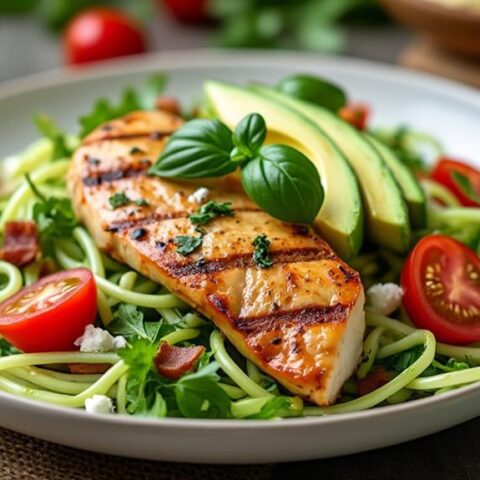
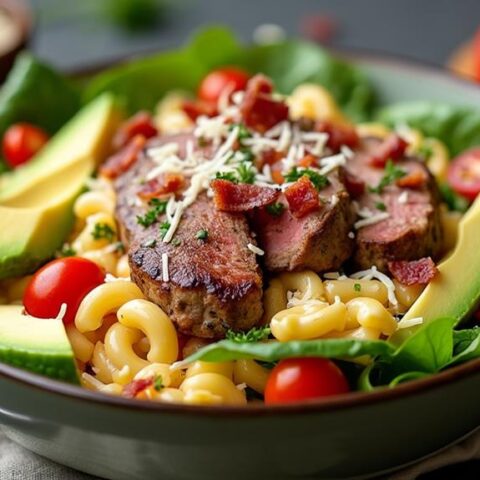




No Comments